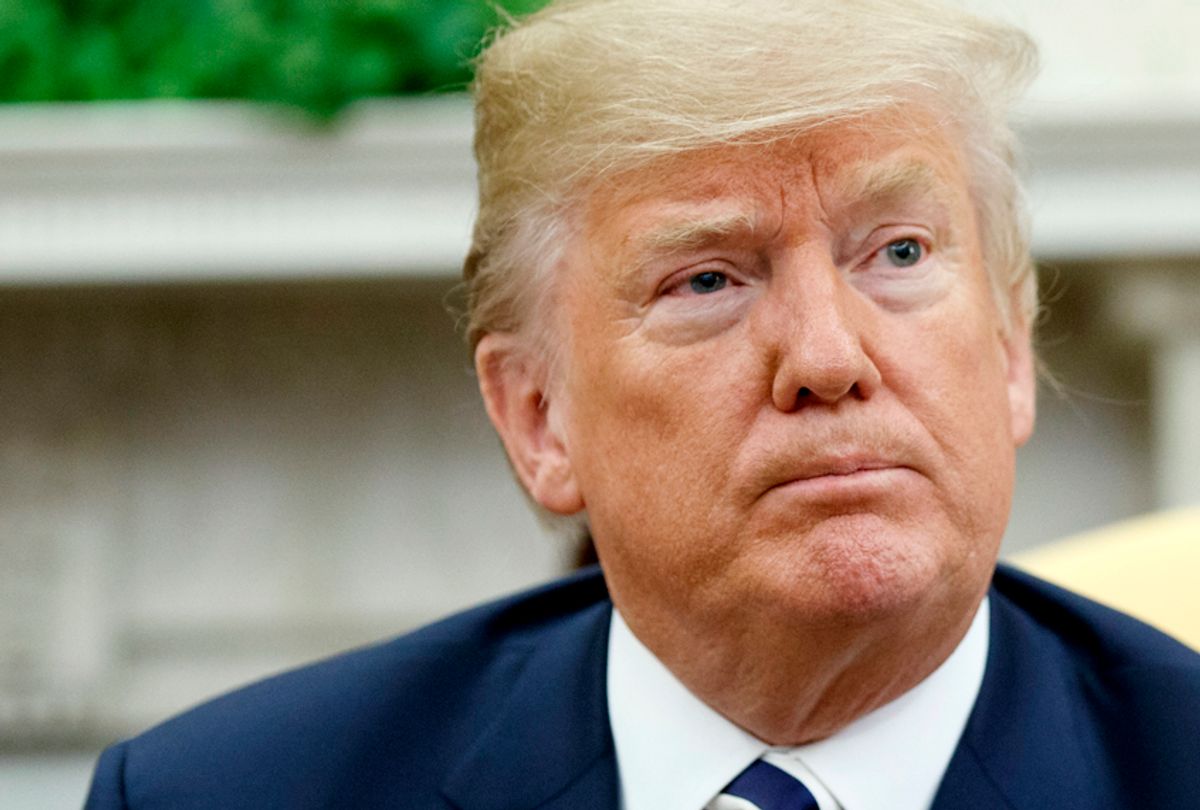Perhaps Donald Trump is just trying to write a follow-up to his best-selling 1987 book “The Art of the Deal.” The new tome would likely be titled “The Art of the Trade War: How to Win Really Big.”
As the U.S. President is busy imposing yet more tariffs — on China, as he thinks — the reality will hit home soon. Tariffs are, in effect, paid not by Chinese exporters, but by the U.S. consumers of Chinese goods.
The U.S. government is extracting these tariffs out of the pockets of its own people, in hopes that this will cause U.S. producers — if they exist – to become more price-competitive.
It will be interesting to observe whether U.S. corporations — specifically, those outside the old/dying sectors of the economy — still matter for anything in Republican politics.
Those CEOs know that China, even with a somewhat slower rate of growth, remains the world’s second-largest economy. It has a fast-growing middle class which obviously interests many U.S. companies, whose sales in China account for a cool $550 billion.
Let us look at a few examples:
- Starbucks makes 20% of its worldwide sales in China. It already has 2,500 coffee shops there, a remarkable success in a land of tea drinkers. The company plans to open twice as many Starbucks shops in the next five years.
- Apple sells one out of five of its smart phones to happy Chinese customers who can afford them — rather than buying the cheap products made by its Apple’s four local competitors.
- What about U.S. car makers? They enjoy big successes in China, a market that surpassed the U.S. one in 2009 and never looked back. Ford sold $1.5 billion worth of cars there last year. And General Motors sold almost one million more cars in China than in the United States last year: 3.9 million cars versus 3 million this side of the Pacific.
- Buick, an almost irrelevant brand in the United States (would you go cruising in a Buick?), sells five times more of its cars in China than in the United States. Perhaps this is due to Chinese people having deference for authority and history: Emperor Pu Yi had two Buicks. They were the first cars to ever enter the Forbidden City.
- Hollywood’s box office receipts declined by 2% in North America in 2017, but grew exponentially in China. That market already represents 42% of its export revenues. Better yet, new movie theaters grow like mushrooms in China: 20% more in one year, up to a current total tally of 10,200 at the end of 2017.
What if China hits back?
You get the picture. What would happen if the Chinese authorities decide to hit back? An instructive case occurred in 2016, when the deployment of an American anti-ballistic missile system in South Korea was announced.
It gave a good opportunity to China to have trade sanctions practice drills. Beijing saw to it that Hyundai sales in China fell a spectacular 64%, as Chinese citizens spontaneously chose to boycott the brand. The sales of South Korea’s Lotte supermarket chain in China went down by 95%.
One could easily imagine scenarios where a failed sanitary inspection at a Starbucks location would regrettably lead to the temporary closing of the chain. Or where the sudden discovery that electronic transmissions from the IPhone are potentially damaging to the brain would lead to a ban of Apple’s star product.
And where it becomes so difficult to pass crash tests that GM cars would fail them. This even though the Detroit firm boasts in its annual report of “its very good relations with its joint ventures partners” — who are (surprise!) close to the government. Be assured that the closeness of those ties will be tested.




Shares